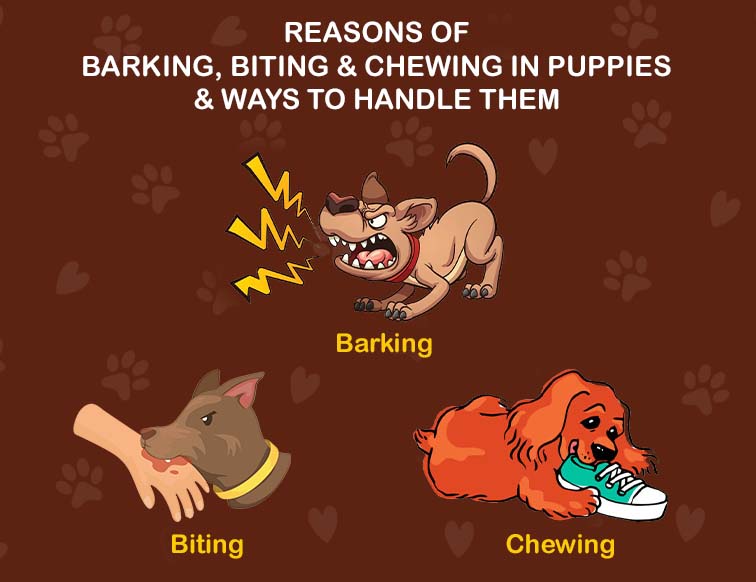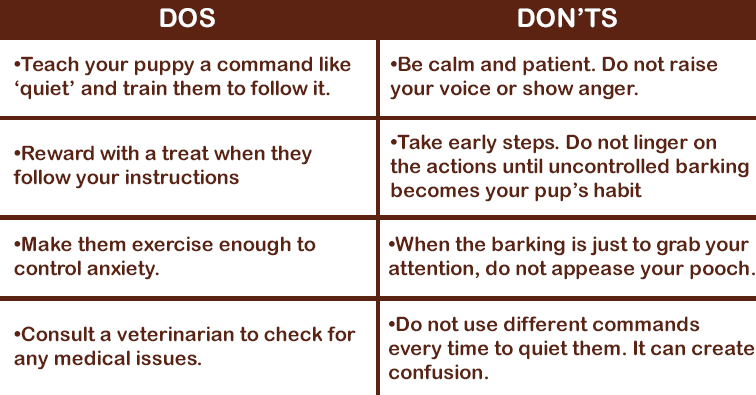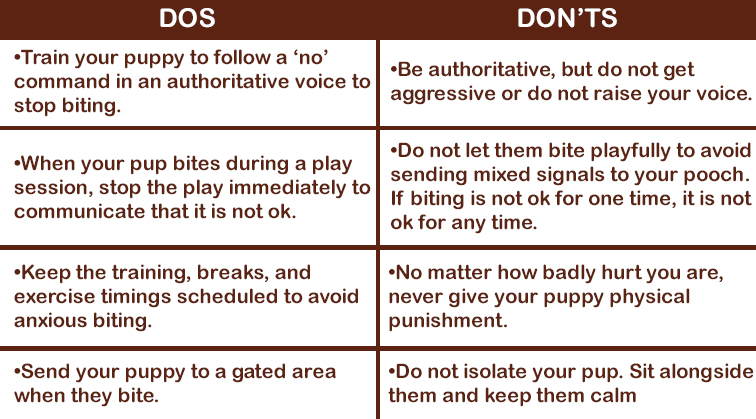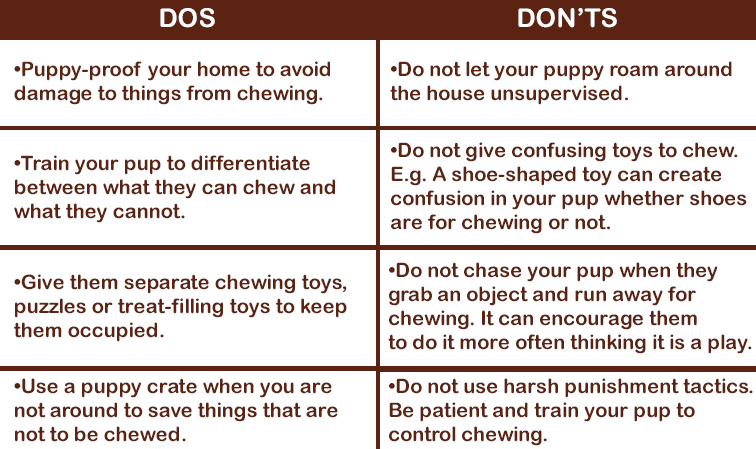Reasons of Barking, Biting & Chewing in Puppies & Ways to Handle Them

You have recently added a junior furry friend to your family. Everyone in the house is so excited and happy to get the little furry bundle of joy around. But why on earth are they barking incessantly, giving you bite wounds, or chewing everything that comes their way? Well, puppies are new to the world, just like cute little babies. While this disruptive and destructive behavior is not adorable by any means, you need to be patient enough to understand the reasons behind it and do what is good for your little friends.
Read on to find out about what causes barking, chewing, and biting in puppies and how to deal with it to get positive results:-
Barking
Can you ask your kid to stop speaking? It is neither practical nor acceptable. Similarly, expecting your pooch to be silent all the time is just not possible. Barking is a dog’s natural behavior. It is their way of communicating with their human buddies and other animals. However, continuous and uncontrolled barking can be a cause of worry and could be your pup’s way of telling you that something is not right.
Here are some of the common reasons why puppies bark constantly:-
- Dogs are territorial and do not like intruders. If your young canine feels the presence of an unknown human or an unfamiliar pet in the vicinity, they will feel insecure and will start barking.
- Being pack animals, dogs crave for companionship. If your pet keeps barking while you are not around, it could be because of loneliness or separation anxiety.
- The mere joy of seeing you on returning home can also be a reason for your pooch barking with excitement.
- Your small puppy barks when they get afraid of unusual activities in their surroundings like a sudden loud noise or an unexpected sight out of the window.
- Your beloved furry baby can be suffering from a medical condition or feeling pain from an injury not visible to you. Barking can be their way of drawing your attention to it.
Dos and Don’ts to control puppy barking
Biting
Puppy bites feel sweet and cute only till they are young. If they do not get trained to stop biting everything that comes their way at a young age, it can create chaos when they turn adults as they will have sharper teeth and more reach to things and people then.
Take a look at a few common reasons for puppy biting behavior:-
- One of the most common reasons for puppy biting is their teething phase. Sore gums during teething entice them to bite anything in their surroundings.
- Full of energy, puppies are always ready to play. Biting you or other pets in the house out of excitement while playing is an absolutely normal dog behavior.
- Biting anything that reaches their mouth could be a way of exploring the world for your little furry friend. Dogs smell everything and everyone to get accustomed to them and bite a lot when they are young to find out and simulate themselves for future responses.
Dos and Don’ts to control puppy biting
Chewing
Being natural chewers, it is normal for puppies to chew everything in their eyesight. From toys to furniture and shoes, your pup’s formative years can be chaotic and scratchy for your house if care is not taken to control their chewing habits.
Here are some common reasons for puppy chewing:-
- Puppies get a feeling of chewing all they can see to get relief from the discomfort of teething.
- In their growing age, puppies are full of energy and need a lot of exercise. They may show chewing behavior to release pent-up energy when they are unable to exercise enough.
- Many times, chewing could be out of sheer boredom.
- Your little furry wonder could be stressed and chewing things just to de-stress themselves.
Dos and Don’ts to control puppy chewing
To conclude:
Barking, biting, and chewing are a part of a dog’s natural behavior. And when it comes to puppies, they tend to show uncontrolled behavior as they have just come into the world. When you bring a small furry friend to your home, be patient and calm. Understand your pooch and give them time to understand you and their surroundings. With proper training and a lot of love and care, your four-legged friend will turn out to be the best companion you can ever get.



